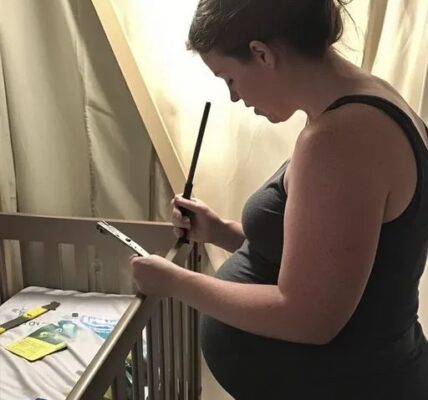25 years ago I married a man with three kids. His name was Ellis, and he had this quiet kindness in his eyes that made me feel safe even on my worst days. His kids—Quentin, Mallory, and Bryson—were just little tornadoes when we met, still grieving their mother who’d passed two years before. I remember their suspicious eyes watching me when I first stepped into their lives, unsure if I’d steal what little stability they had left.
Ellis made it his mission to make us a family. He’d plan Saturday picnics, cheesy game nights, and long talks under the stars. For one year, we lived like a patchwork family sewn together by love and hope. Then Ellis collapsed in the kitchen one morning, a heart attack they said, sudden and final. I went numb. I looked at those three small faces staring at me with fear and confusion, and I promised them they’d never lose another parent again.
So I raised them as my own. I learned to braid Mallory’s hair for recitals, to coach Bryson through math homework he hated, and to sit with Quentin through his teenage heartbreaks. Money was tight, but I worked double shifts at the diner, then cleaned offices at night. I skipped vacations, new clothes, even dentist appointments so they could have what they needed. And when they graduated high school, I clapped the loudest.
But time has a funny way of stealing your strength. At 63, I’ve grown thin, my joints ache in the cold, and I’ve been in and out of the hospital these past few months. I never told them how scared I’ve been. I thought they’d come around on their own, that the bond we shared would make them call, visit, ask how I was doing. Instead, the visits dried up. Calls came once every few weeks—always rushed, always distracted.
I tried to tell myself they were busy with their own lives, kids, jobs, mortgages. But last week, I overheard a phone conversation between Quentin and Mallory while I lay half-awake on the couch. They thought I was asleep. They were talking about the cemetery plot they bought for me, and how it would save them money if I passed sooner rather than later. They even described the headstone they’d ordered—cheap granite, something “simple but decent.”
I felt my heart crack open. How had we come to this? I raised them like they were mine. I gave them everything I had. And they were waiting for me to die.
But there’s something they didn’t know.
I actually inherited Ellis’s old farmland after he died, but I never told the kids. It wasn’t worth much back then, but the town has grown, and developers started buying land nearby to build fancy subdivisions. Two months ago, an agent called me, offering nearly $2 million for the property. I signed the paperwork quietly. The check cleared last week.
As I sat at the kitchen table staring at the statement from the bank, I felt a strange calm wash over me. I realized I had choices. I could leave everything to the kids despite what they’d done—or I could do something else. Part of me wanted to forgive them, to think they were just being practical, scared of the burden I’d become. But another part of me whispered that love doesn’t sound like that, doesn’t plan your funeral with such coldness.
I called my neighbor, Ethel, who’s been more of a friend than my own children lately. She’s 75, lives alone, and volunteers at the community center. We talked about what I’d heard, and she squeezed my hand with tears in her eyes. She told me about a local charity she volunteers with that helps kids in foster care transition into college or their first jobs. How so many of these kids never get a chance because they lack support.
That night, I couldn’t sleep. I kept thinking about those foster kids who, like Quentin, Mallory, and Bryson once were, just needed someone to believe in them. Someone to love them without conditions or expectations.
The next morning, I called the charity. The director, a kind woman named Ronette, explained they’d been saving up to buy a run-down apartment building to convert into affordable housing for aged-out foster youth. They were still $500,000 short. My heart swelled. I knew exactly what I wanted to do.
But I didn’t want revenge or to spite my kids. I wanted them to understand love. So I called them all to my house for dinner. They came, surprised by the invitation, suspicious in their own ways. They looked uncomfortable, like they were walking into a trap. I tried to ignore the bitterness boiling under my skin.
We sat around the old oak table where we’d once celebrated birthdays and graduations. I told them I loved them, but I’d overheard them talking about my death. Their eyes widened, Mallory stammered something about “misunderstanding,” but I could see the truth in their faces. I told them about the farmland, the money, and the opportunity I had to help children who had no one else.
Quentin slammed his hand on the table. “You can’t give it all away! We’re your family!”
I looked him in the eyes, tears filling mine. “You stopped being my family when you stopped caring if I was alive.”
Mallory burst into tears. Bryson sat silent, jaw clenched. I told them I’d decided to split the money: half to the charity to buy and renovate the apartment building, half in a trust that they could only access if they each visited me once a month for a year. If they didn’t, the money would go entirely to the charity.
The room fell silent. Quentin looked like he’d swallowed a lemon. Mallory’s sobs turned quiet. Bryson finally whispered, “I’m sorry, I didn’t know how bad things had gotten.”
For the first time in years, I felt the power of my own voice. I told them I didn’t want their pity or forced kindness—I wanted them to remember what it meant to love someone who couldn’t give them anything back.
Over the next weeks, something shifted. They started coming by, at first awkwardly, with flowers or groceries. Quentin fixed the leaky faucet. Mallory cooked dinner. Bryson sat with me to watch old movies. Sometimes they’d argue in the kitchen, accusing each other of just wanting the money. But over time, the conversations grew softer. They stayed longer. They laughed more. And when I woke up in the hospital again after a fall, they were all there.
The charity bought the apartment building, naming it Ellis Place after my late husband. They invited me to the ribbon-cutting. I watched as young people who had known nothing but rejection moved into their first real homes, eyes full of hope. One girl hugged me so tightly I thought my ribs might crack. She told me she’d finally have a place to study, to sleep safely, to dream.
That night, I sat with my kids at the kitchen table again. This time, there was no tension. We ate soup and homemade bread. We talked about old memories. We even planned a family trip to the mountains if I got strong enough.
I realized love doesn’t die because people lose their way. It dies when we stop giving it a chance. My children’s greed had shaken me to my core, but giving them a reason to remember what we once were—and seeing them step up—made me believe family could still be saved.
My health is still fragile, and I know I don’t have endless time left. But I sleep better knowing those kids in Ellis Place will grow up with more chances than they ever dreamed. And that my own kids have remembered, maybe just in time, how to love selflessly.
The lesson I learned is that family isn’t just blood or shared history—it’s what you choose to nurture every single day. Don’t let bitterness or convenience rob you of real connection. And when you have the chance to do something good, take it, because kindness will outlive you in ways you’ll never imagine.
If you found something meaningful in this story, please share it with someone who needs to hear it. ❤️
(If you enjoyed this story, give it a like and share so others can read it too!)

